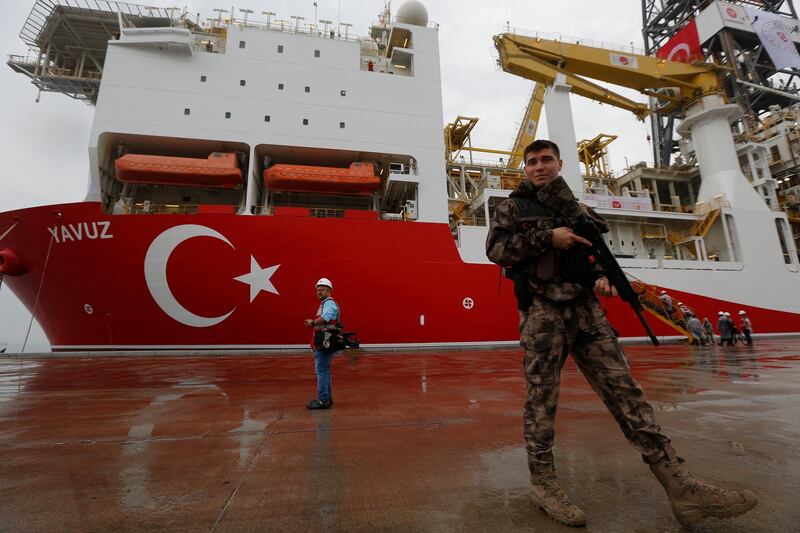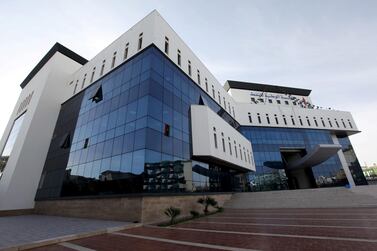The EU has agreed to sanctions against two officials from Turkey’s state petroleum company.
The action against the officials of Turkish Petroleum will be given approval by EU lawyers on Thursday before they are formally announced, diplomats say.
It is the first time EU sanctions will be used against people linked to Turkish exploration and drilling in the eastern Mediterranean off Cyprus.
An EU foreign affairs spokesman declined to identify the two officials concerned.
In November, the EU unveiled a system for imposing sanctions on Turkish companies or officials involved in drilling off Cyprus.
They include travel bans and asset freezes for people involved in the unauthorised exploration.
Fadi Hakura, a consulting fellow on Chatham House’s Europe Programme, said the sanctions would be regarded by Turkey as a “slap on the wrist” rather than “a painful measure”.
"Europe is in a bind," Mr Hakura told The National. "On the one hand, the EU wants to reprimand Turkey for drilling in the coastal waters of Cyprus, to placate the Greek Cypriots and Greece.
"But on the other hand, it does not want not to push Turkey too far."
Relations between Ankara and Brussels have been deteriorating, particularly over disputes relating to natural gas deposits near Cyprus.
In May, Turkish Petroleum's Faith ship began drilling in areas north-west of Cyprus, which are claimed by the EU member.
Ankara and Turkey’s state oil companies have been accused of exploiting the decades old dispute over Cyprus to ignore international law.
Turkey does not recognise Cyprus as a state and claims the northern half of the island as part of its own economic zone.
In 1974, Turkish forces invaded and occupied the northern third of Cyprus.
Ankara only recognises the authority of the Turkish Republic of Northern Cyprus on the island, which has been described by the European Court of Human Rights as a “puppet state”.
The Faith was followed by a second ship, the Yavuz, which eventually moved into areas south of Cyprus in waters apportioned to Total and Eni in agreements made by the Cypriot government in Nicosia in September.
The EU backs Cyprus unequivocally. Turkey has made threats over the gas dispute, which have affected other areas of foreign policy with other members of the EU.
At the initial news of the sanctions regime in November, Turkish President Recep Tayyip Erdogan said he could renege on his country’s migration deal with the EU and release millions of Syrian refugees into mainland Europe.
The Turkish leader also said Ankara could step up its deportation of EU nationals who fought with ISIS.
European nations have strongly resisted the repatriation of ISIS fighters from Syria.
Turkey’s desire to expand its reach into the Mediterranean, largely at the expense of Europe, has also affected the continuing conflict in Libya.
In early December, Libya’s Tripoli-based Government of National Accord and Turkey confirmed a new maritime border deal in the Mediterranean in exchange for military co-operation.
Egypt, France, Cyprus and Greece condemned the agreements that would give Turkey access to potentially lucrative natural gas reserves in the area.
Reports later emerged of thousands of Syrian fighters being sent to Libya through Turkey to bolster the security of the GNA in Tripoli.
Turkey is trying to break up plans by Egypt, Cyprus, Greece and Israel to turn the East Mediterranean into an energy centre after the discovery of massive reserves of natural gas.







